Contact us at
Transparency Act
This statement was originally made in Norwegian as required by the Act relating to enterprises' transparency and work on fundamental human rights and decent working conditions (Transparency Act, NO: “Åpenhetsloven”). The statement has been translated to English for informational purposes only.
In the event of any inconsistency, the Norwegian version shall prevail.
The Transparency Act came into force on 1 July 2022. This will ensure decent working conditions throughout the value chain and promote transparency around how we as an organization respect human rights and decent working conditions. The Transparency Act shall, together with other measures, contribute to Norway's efforts to meet the UN's sustainability goal no. 8 on decent work and economic growth, and goal no. 12 on responsible consumption and production.
We at PatoGen are positive about a piece of legislation that contributes to increased focus and respect for basic human rights and decent working conditions.
Our business practices
PatoGen provides services based on biotechnological analyses to detect disease agents and genetic markers in fish. This information is used by fish breeders in their preventative fish health work.
The company's head office is in Ålesund. The group delivers the services through the use of laboratories in Ålesund, Bodø and Oban (Scotland) as well as through agreements with subcontractors. PatoGen AS is 100% owned by Dr. Fürst Medisinsk Laboratorium AS.
PatoGen's objective is to contribute to predictability in the aquaculture industry by preventing infection and disease, which will further improve profitability for customers. At the same time, preventive and systematic work with fish health will take care of the industry's increasing demands for a gentle and sustainable production of fish. In the company's vision "We inspire actions for healthier fish", we state that PatoGen should be at the forefront of fish health challenges and that a lot of resources are used for research and development to take care of customers' needs.
PatoGen also works with measures to minimize waste and a more optimal use of resources, which includes recycling materials and reducing unnecessary consumption, including plastic. PatoGen participates in research projects and collaborates with academic institutions and authorities to develop and implement sustainable solutions for fish health and farming.
Due diligence assessment
Our due diligence assessment processes consist of;
• mapping and identification of risks for violations of human rights and decent working conditions
• implementation of measures to reduce negative risk
• implementation of measures and monitoring of results
All workers, both our own employees and employees in our supply chain, must have decent working conditions in line with the UN Convention and national labour legislation at the production site. Goods and services delivered to PatoGen must be produced under conditions that are compatible with requirements in the Transparency Act. Our routines and processes to ensure basic human rights and decent work are included in our management system and are based on OECD guidelines.
PatoGen expects the same from our suppliers as we demand from ourselves. Human rights and working conditions are included in our ethical guidelines. Routines have been designed for reporting objectionable conditions, and employees are followed up through, among other things, employee interviews and employee surveys.
We have a good overview of our suppliers, systematized in our own agreement archive. In order to produce an analysis result, we depend on subcontractors for the delivery of equipment, instruments and reagents that have been manufactured and approved for laboratory purposes.
We are in the process of carrying out risk analyses of our suppliers with regard to human rights and decent working conditions, and identifying those suppliers where there may be underlying risks. We see that the main weight of risk associated with suppliers of products is found in the underlying supply chains. Therefore, in a separate supplier declaration, we have demanded that our suppliers identify subcontractors where there is an underlying risk of violations of human rights and decent working conditions, and thus demand that suitable preventive measures are implemented in relation to them.
Our suppliers undertake to follow up their subcontractors to ensure compliance with requirements in the Transparency Act at all stages. This is secured with binding agreements where suppliers must declare that they follow international conventions and avoid violations of human rights.
PatoGen evaluates and assesses the risk of its suppliers annually. We monitor the total risk and compile a risk picture of the various suppliers. There are strict requirements for purchasing and deliveries must be contracted. Potential products defined on the Directorate for Administration and Financial Management's high-risk list will be identified through our future evaluations. The type of measure is assessed based on the type of identified risk. We value good cooperation with our suppliers and preferably implement measures after dialogue with the supplier in question.
It is demanding to ensure that all our suppliers comply with all requirements in the Transparency Act at all times. We depend on mutual understanding and documentation of compliance.
So far, through our work with due diligence assessments, no actual negative consequences have been uncovered, either in our own business or in our supply chain. An expected result of having initiated work with due diligence assessments is to be able to contribute to increasing awareness of social, economic and climate conditions both among our employees and in the supply chain.
Information about our work with due diligence assessment is published in our annual report, which is approved by the board.
Questions regarding PatoGen's compliance with the Transparency Act can be addressed to: post@patogen.no
Copyright © 2023 PatoGen AS

